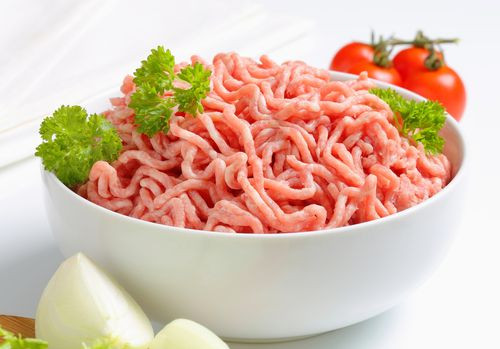Pink Slime Labels: Cargill To Identify Finely Textured Beef Products After Outcry

While it’s still unclear how much of the beef we eat is actually lean finely textured beef (LFTB), popularly known as “pink slime,” the beef processing company Cargill Inc. is taking steps toward transparency, and has announced that beginning early next year, food labels will indicate when LFTB is used in ground beef products.
Pink slime first appeared when TV Chef Jamie Oliver showed how it’s used in school lunches and McDonald’s hamburgers during his TV show, Jamie Oliver’s Food Revolution. The process of making LFTB includes taking the fatty and unused scraps of the animal carcass and washing it in ammonium hydroxide in order to kill E. coli and any other dangerous contaminants, enabling processors to get the most out of each animal. “Why would any sensible human being put meat filled with ammonia in the mouths of their children?” Oliver said on the show. This coverage, along with that from other media outlets, led to the public’s increasing demand that the supplier of LFTB, Beef Products Inc., be more transparent with the food it’s selling.
Cargill avoided being reprimanded largely because it uses citric acid rather than ammonium hydroxide to wash its meat. The majority of people found the idea of citric acid in their food to be more pleasant than a common household cleaning agent. But after seeing the firestorm that Beef Products Inc. endured, and how it affected its own business — demand for LFTB fell by 80 percent — Cargill is making an effort to be more transparent with its food, and will begin labeling its meat that contains LFTB early next year. The decision comes after 18 months of surveys, in which more than 3,000 people were asked about their feelings on ground beef and how it’s produced, Reuters reports.
“Our research shows that consumers believe ground beef products containing finely textured beef should be clearly labeled,” John Keating, president of Cargill Beef, said in a statement. “We’ve listened to the public, as well as our customers, and that is why today we are declaring our commitment to labeling finely textured beef.” The labels, which will say “Contains Finely Textured Beef,” will appear on Cargill’s branded, U.S.-made ground beef products before the 2014 grilling season, the statement said.
Despite the public’s furor over washing beef with ammonium hydroxide, the U.S. food and Drug Administration (FDA) considers its use as Generally Recognized As Safe, meaning that “concentrations of ammonia and ammonium compounds normally present in food do not suggest a health risk.” The agency announced this designation in 1974, and up until last year, considered LFTB to be like any other beef. Both Cargill and Beef Products Inc. supported a rule change allowing LFTB to be marked on some packaging so that consumer confidence could be restored.



























